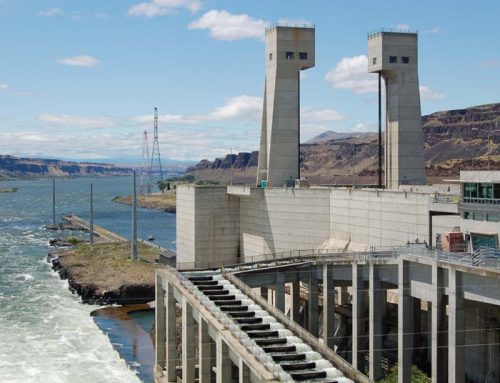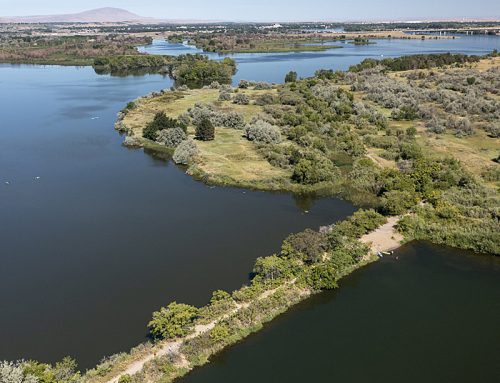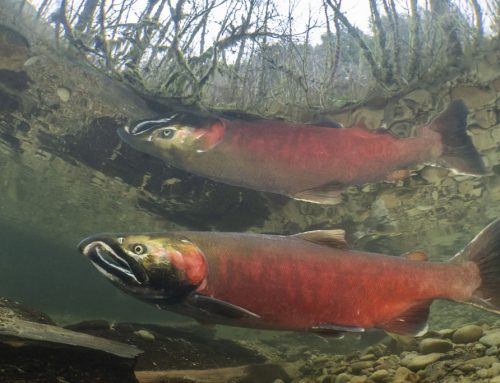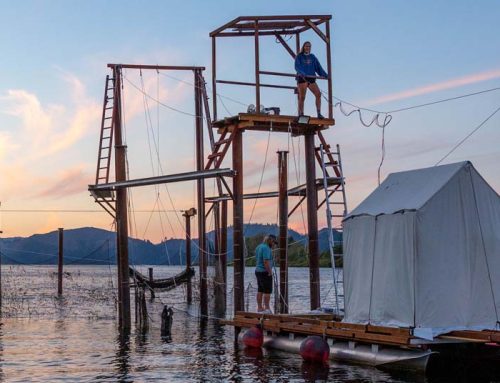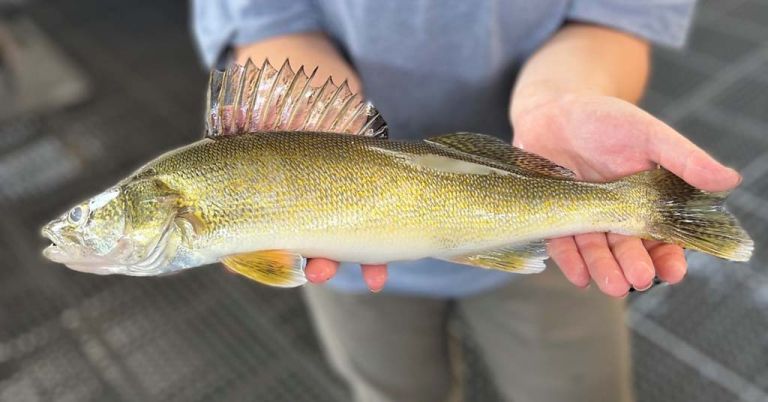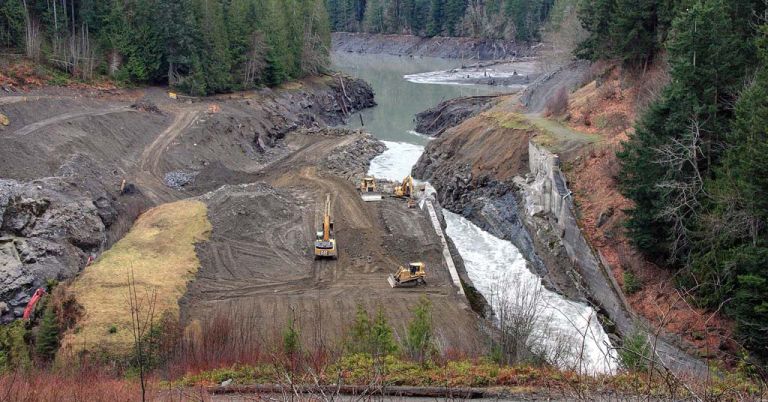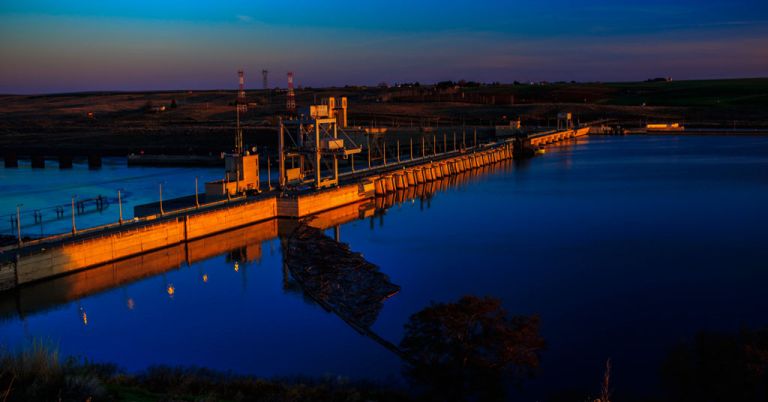The Biden administration engaged more in the effort to recover Columbia River Basin salmon than any in history
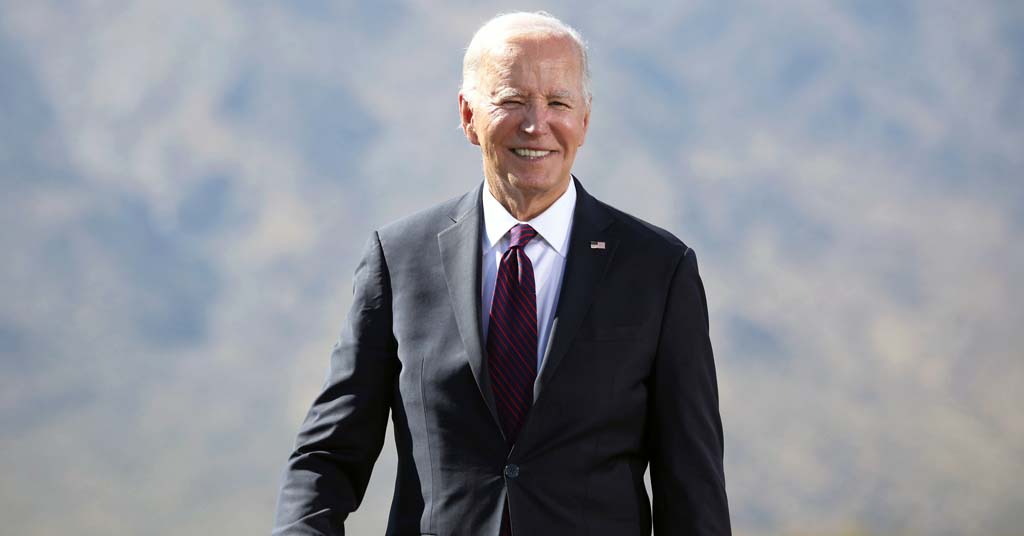
Fisherman’s friend: Salmon advocates taking stock of the Biden presidency have much to consider. Photo: Gage Skidmore/Flickr
By Eric Barker/The Lewiston Tribune. December 4, 2024. Call him the salmon president.
Shortly after Biden was inaugurated, Rep. Mike Simpson of Idaho unveiled his $33.5 billion plan to breach the Snake River dams and replace the important services they provide.
Simpson’s move lifted the issue to the halls of Congress from what had been a regional debate with advocates on both sides pressuring federal agencies to endorse keeping or breaching the dams.
While Simpson’s plan didn’t catch fire there, the issue found favor with members of Biden’s team, ramping it up to yet another level.
Biden selected Deb Haaland to serve as Interior Secretary—the first Native American to hold a cabinet post. Haaland was sympathetic to the efforts of tribes across the country to restore the environment and to the historic wrongs they faced.
Biden also selected other Native Americans like Jaime Pinkham, a member of the Nez Perce Tribe, and Michael Connor, a member of the Taos Pueblo, to high posts overseeing the Army Corps of Engineers.
In the fall of 2021, the Biden administration entered into talks with the Nez Perce and other Columbia Basin tribes, their allies and Oregon in an effort to settle decades-old litigation over the harm dams cause to salmon.
Those talks led to an agreement, finalized last last year, with the Nez Perce and other Columbia Basin tribes, conservation groups and Oregon, that paused salmon-and-dams litigation for up to 10 years and greenlighted studies and an alternative energy development efforts that could pave the way for future breaching of the Snake River dams.
A separate agreement advanced efforts to reintroduce salmon above Grand Coulee Dam on the upper Columbia River.
In March of 2023, Biden, speaking from the White House, pledged to work with tribal and political leaders of the Pacific Northwest to recover salmon runs that spawn in the Columbia River and its tributaries.
In September of last year, he issued a memo calling for a “sustained national effort” to honor commitments to the Nez Perce and other tribes by restoring Snake and Columbia river salmon and steelhead to healthy and abundant levels.
Under Biden, the federal government acknowledged for the first time that hydropower development on the Columbia and Snake rivers caused grave harm to tribes, in large part because the harm they caused to wild salmon runs.
The National Oceanic and Atmospheric Administration said under his watch that Snake River salmon can’t be recovered to healthy and harvestable levels without breaching—a first for the agency in charge of protecting the threatened and endangered fish.
Biden’s signature legislative victories—the Inflation Reduction Act and the Bipartisan Infrastructure Act—devoted money to fix ailing salmon and steelhead hatcheries in the basin.
“For far too long, salmon and steelhead recovery has been left on the cutting room floor of successive administrations,” said Chris Wood, president of Trout Unlimited. “President Biden is the first president in many years who took seriously our obligations to indigenous peoples and who understood how salmon and steelhead reflect the best part of America.”
This story was originally published by The Lewiston Tribune.


